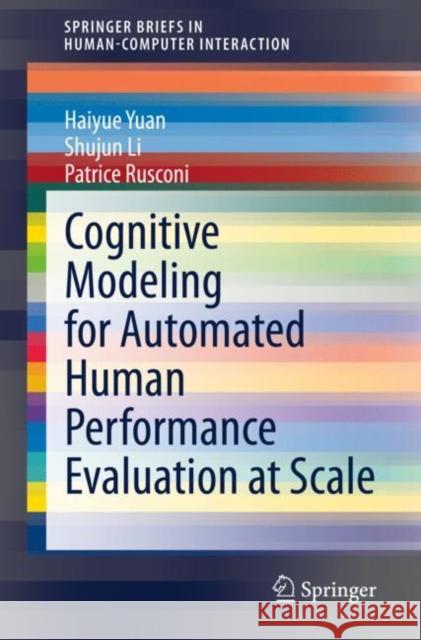Cognitive Modeling for Automated Human Performance Evaluation at Scale » książka
topmenu
Cognitive Modeling for Automated Human Performance Evaluation at Scale
ISBN-13: 9783030457037 / Angielski / Miękka / 2020 / 97 str.
Kategorie:
Kategorie BISAC:
Wydawca:
Springer
Język:
Angielski
ISBN-13:
9783030457037
Rok wydania:
2020
Wydanie:
2020
Ilość stron:
97
Waga:
0.17 kg
Wymiary:
23.39 x 15.6 x 0.58
Oprawa:
Miękka
Wolumenów:
01
Dodatkowe informacje:
Wydanie ilustrowane
Shujun Li is Professor of Cyber Security at the School of Computing, University of Kent. He is directing the Kent Interdisciplinary Research Centre in Cyber Security (KirCCS), a UK government recognised Academic Centre of Excellence in Cyber Security Research (ACE-CSR). His research interests are mostly around interdisciplinary topics covering cyber security, digital forensics and cybercrime, human factors, multimedia computing, and practical applications of artificial intelligence and discrete optimization. Due to the interdisciplinary nature of his research, He is actively working with researchers from other disciplines such as Electronic Engineering, Psychology, Sociology, Law, and Business. He was/is leading a number of research projects as the lead investigator. He has published over 100 peer-reviewed research papers at international journals and conferences and received two Best Paper Awards. In 2012 he received an ISO/IEC Certificate of Appreciation, for being the lead editor of ISO/IEC 23001-4:2011 "Information technology – MPEG systems technologies – Part 4: Codec configuration representation", the 2nd edition of the MPEG RVC (Reconfigurable Video Coding) standard. He was/is on the editorial boards of a number of international journals, and has been on the organising or technical program committees of over 100 international conferences and workshops.











